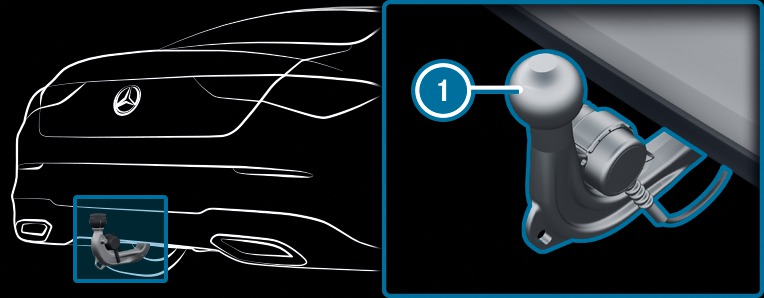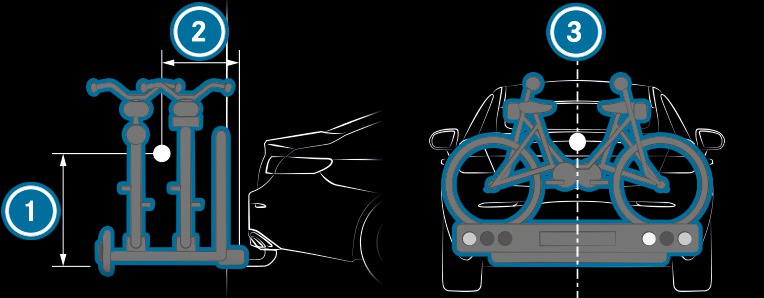the permissible load capacity of the trailer hitch is exceeded.
the bicycle rack is used incorrectly.
the bicycle rack is secured to the ball neck beneath the ball head.
always adhere to the permissible load capacity of the trailer hitch.
always observe the permissible rear axle load of the towing vehicle.
use the bicycle rack only to transport bicycles.
always properly secure the bicycle rack by attaching it to the ball head.
use only bicycle racks approved by Mercedes-Benz.
always observe the bicycle rack operating instructions.

Depending on the bicycle rack's design, up to three bicycles can be transported on the bicycle rack.
When mounted by attaching to ball head  , the maximum load capacity is 75 kg.
, the maximum load capacity is 75 kg.
The maximum load capacity is calculated from the weight of the bicycle rack and the bicycle rack load.
Observe the notes on driving with a roof load, trailer or fully laden vehicle More.
When using a bicycle rack, set the tyre pressure for increased load on the rear axle of the vehicle. Further information on the tyre pressure can be found in the tyre pressure table More.
The larger the distance between the load's centre of gravity and the ball head, the greater the load on the trailer hitch.
mount heavy bicycles as close to the vehicle as possible
always distribute the load on the bicycle rack as evenly as possible across the vehicle's longitudinal axis
Mercedes-Benz recommends removing all detachable parts from bicycles (e.g. baskets, child seats, rechargeable batteries) before loading them onto the bicycle rack. This will improve the aerodynamic resistance and centre of gravity of the bicycle rack.
Always secure the bicycles to prevent them from moving around and check them at regular intervals to ensure that they are secure.
Do not use tarpaulins or other covers. The driving characteristics and rear view may be impaired. In addition, aerodynamic resistance and the load on the trailer hitch will increase.




Observe the following information when you are loading the bicycle rack with up to three bicycles:
Total weight of bicycle rack and load | Max. distance | Max. distance |
|---|---|---|
Up to 75 kg | 420 mm | 300 mm |

